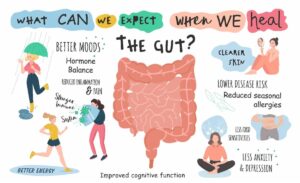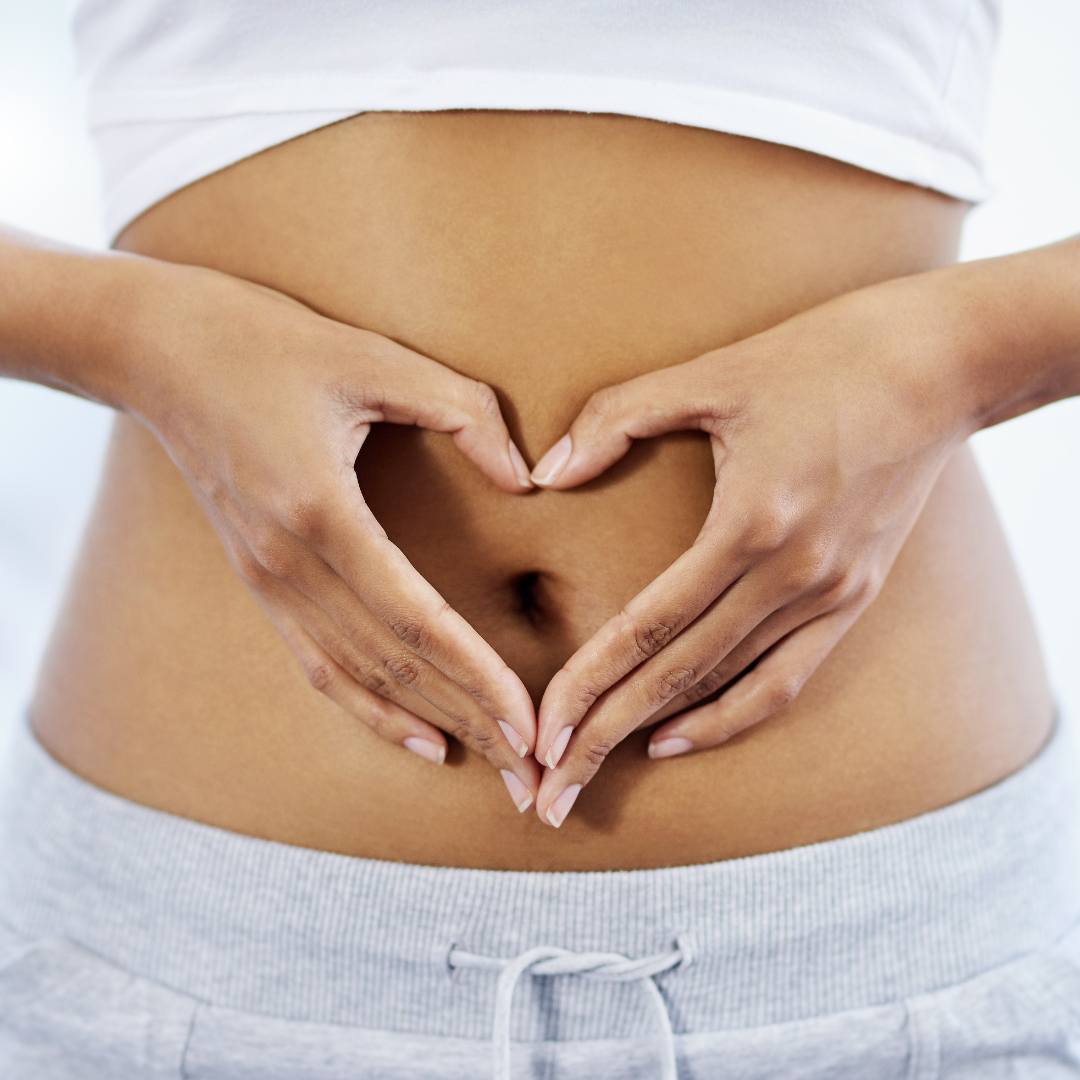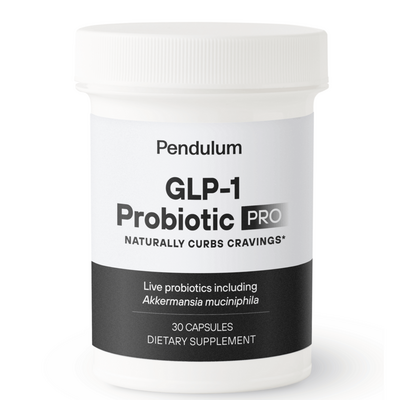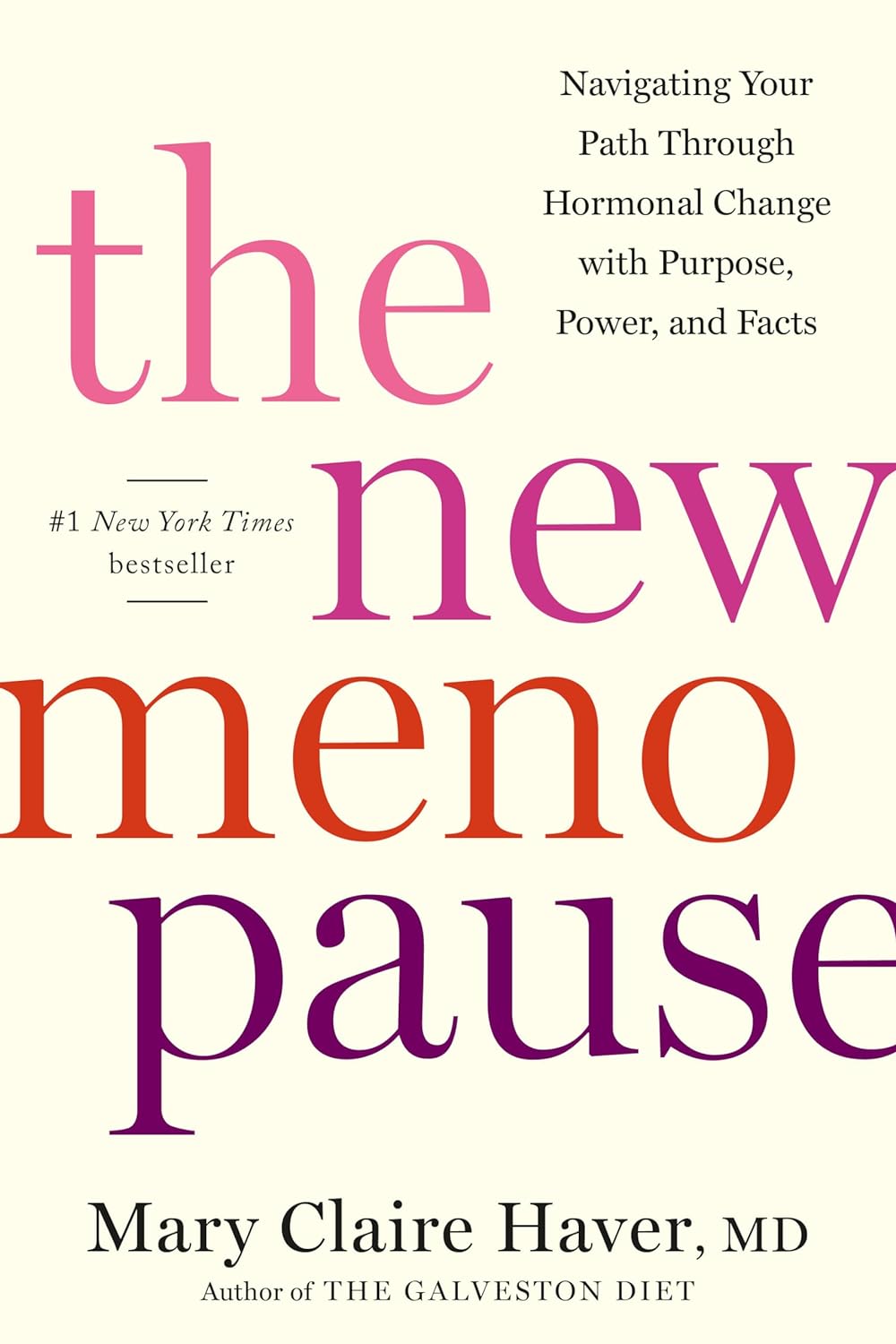The 4Rs of Gut Healing
1. Remove: The first step is to remove pathogens and inflammatory triggers that are associated with increased intestinal permeability.
2. Replace: The second step is to replace these with nutrients in the diet that help to reduce inflammation and optimize digestive health.
3. Reinoculate: The third step is to reinoculate the intestinal microbiota with beneficial bacteria.
4. Repair: The final step is to repair the intestinal lining with specific nutrients and medicinal herbs known to decrease intestinal permeability and inflammation.
Maintaining good digestive health is essential to ensuring the proper absorption of nutrients and supporting the function of all bodily systems. For example, the health of the gastrointestinal system, particularly the gut microbiota, impacts mental health through its connection with the central nervous system, often referred to as the gut-brain axis.
Gut health can be negatively impacted by several mechanisms. Gut microbiota imbalance (dysbiosis) and inflammation lead to increased intestinal permeability. Increased intestinal permeability, commonly referred to as Leaky Gut Syndrome, occurs when the tight junctions between cells of the intestinal lining are altered, enabling potentially harmful substances to pass through the intestinal wall. Various health conditions are associated with leaky gut, including celiac disease, inflammatory bowel disease (IBD), type 1 diabetes, and multiple sclerosis (MS).
The 4R protocol is a common four-step intervention designed to support gut healing.
The 4R Protocol
Remove
● Alcohol
● Gluten, a protein found in certain grains (e.g., wheat, barley, rye)
● Food additives (e.g., salt, emulsifiers, solvents)
● Refined starches and sugar
● Saturated and trans-fatty acids (e.g., vegetable shortening, margarine, certain baked goods, fried foods)
● Food sensitivities
Replace
● High-fiber foods (e.g., vegetables, fruit, nuts)
● Omega-3 fatty acids, found in oily fish (e.g., salmon, mackerel, herring, trout)
● Extra virgin olive oil
● Mushrooms
● Anti-inflammatory herbs and spices (e.g., turmeric, rosemary, garlic)
Reinoculate
Probiotic supplements
Fermented foods, such as:
● Cultured dairy (e.g., yogurt, kefir, sour cream)
● Fermented vegetables (e.g., sauerkraut, kimchi, unpasteurized pickles)
● Fermented soy products (e.g., miso, tempeh, natto)
● Fermented beverages (e.g., kombucha, kvass, water kefir)
Repair
● Zinc
● L-glutamine
● Vitamin D
● Polyphenols (e.g., quercetin, myricetin, curcumin)
● Omega-3 fatty acids
● Marshmallow root
● Aloe vera
● Chios mastic gum
● Deglycyrrhizinated licorice (DGL)
Please feel free to contact me for more information on gut health. With the help of Diagnostic Solutions in home test kits, we can map out a custom plan.
For more information about the supplements listed above, you can visit my Fullscript dispensary. CLICK HERE to sign up for a free account and access my recommendations.
Sincerely,
Bob Wood, RPh

*These statements have not been evaluated by the Food and Drug Administration. This information is not intended to diagnose, treat, cure, or prevent any disease.








